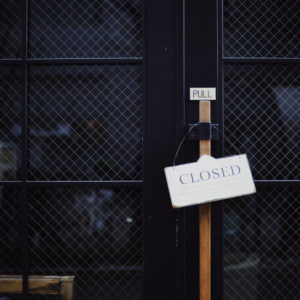Will COVID-19 Excuse Non-Performance of Texas Contracts?
March 30, 2020 by
Part II: The Impact of Shelter-in-Place Orders Closing Businesses
This article follows our earlier post regarding the impact of COVID-19 on contract obligations in Texas. After the imposition of recent “Shelter-in-Place” Orders issued across several counties and cities in Texas, a number of businesses have been forced to shut down and completely cease operations because they are not classified as “Essential Businesses” (as that term is defined in those Orders). These new laws give rise to the question of what impact the Orders have on contract obligations when a business literally is unable to perform their obligations because operations have been shut down by the county or city.

Fortunately, such dire circumstances may give rise to an affirmative defense1 for the party who could not perform. As a justification for its failure to perform under a contract, a party may be able to raise, as an affirmative defense in a lawsuit for breach of contract, the doctrine of “impossibility.” Texas courts have called the doctrine of “impossibility” by different names: impossibility of performance, commercial impracticability, or frustration of purpose.2
The impossibility defense generally applies in three instances: (1) the death or incapacity of a person necessary for performance, (2) the destruction or deterioration of a thing necessary for performance, and (3) prevention by governmental regulation.3 Because the focus of this article is on the impact of the recent “Shelter-in-Place” Orders, only the third instance is relevant here. The third instance allows courts to read into a contract an escape clause that does not otherwise exist.4 Indeed, the Texas Supreme Court has held “where a party’s performance is made impracticable by the occurrence of an event[,] the non-occurrence of which was a basic assumption on which the contract was made, [the party’s] duty to render that performance is discharged. A governmental regulation or order that makes impracticable the performance of a duty is an event the non-occurrence of which was made a basic assumption on which the contract was made.”5
In that particular case, a federal agency issued an order prohibiting the appellant Centex from making payments under a contract.6 The Texas Supreme Court held that the issuance of such an order was a sufficient supervening cause that rendered performance impracticable, and accordingly Centex was excused from performance.7
Here, a similar affirmative defense to failure to perform under a contract may potentially be available to certain businesses affected by a “Shelter-in-Place” Order (that have been forced to close and thereby completely cease operations) and under certain limited circumstances, assuming the other party is still requiring performance. Now, bear in mind that for this affirmative defense to be successful, the Order has to prevent the business from performing—not simply make it inconvenient or more difficult. Every case is different, so the use of the “impossibility” defense depends on the facts. If you fear you or your business may be the victim to these circumstances, contact us to help evaluate your situation.




